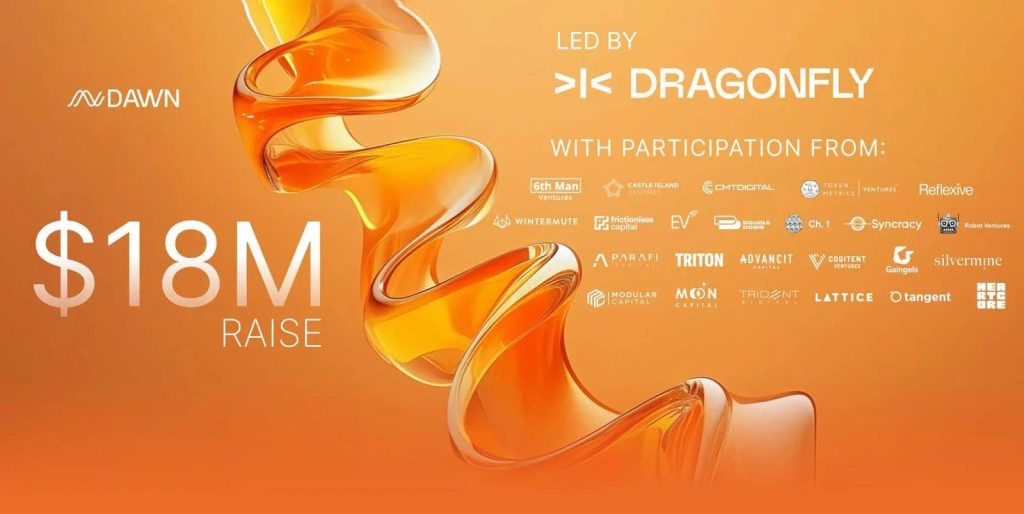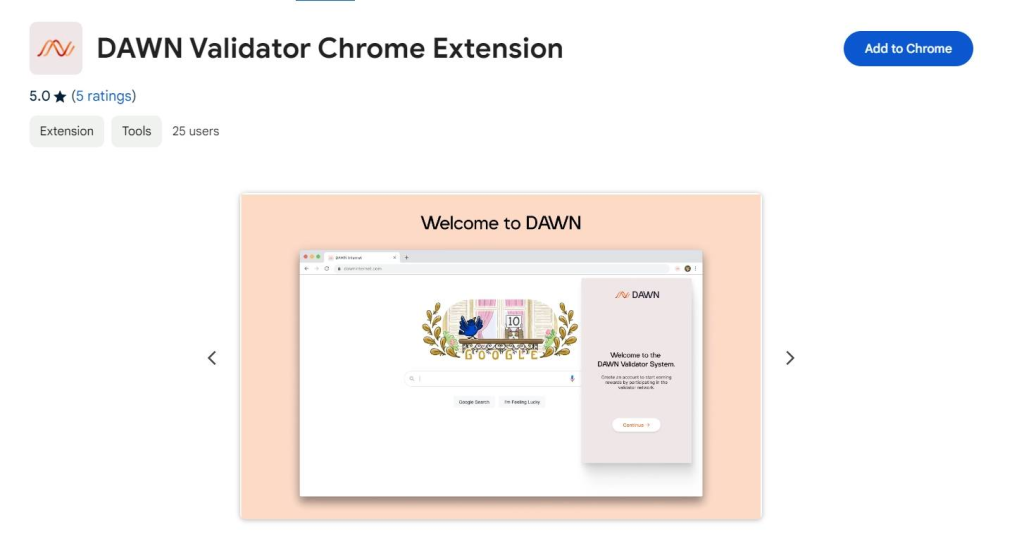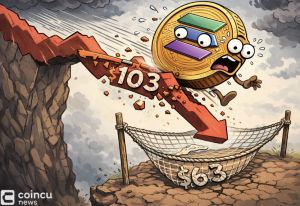DAWN Review: DePIN Project Raises Huge Funds on Solana Ecosystem
DAWN, a DePIN protocol on Solana, provides decentralized internet services. Users can download utilities and become validators to earn points, similar to Grass.

What is DAWN?

DAWN is a DePin protocol built on Solana to provide users with decentralized internet services. It creates a user-powered network that helps families and businesses access affordable internet resources thanks to improvements in wireless technology.
There are three main components:
- Incentive mechanism: Use tokens to reward network members based on contribution and performance.
- Decentralized consensus mechanism: Apply mechanisms such as “Proof of Bandwidth” and “Proof of Location” to ensure network performance.
- Bandwidth marketplace: Provide a platform for buying and selling connectivity, turning saving and reselling internet into an investment.
Read More: Grass Token Airdrop Requires Users to Quickly Link Wallet Before August 23
How does it work?

- Bandwidth Node (BN): This is a node that is capable of wholesaling internet bandwidth, selling IP forwarding connections, and connecting to internet exchange points. BN deploys DAWN-approved point-to-multipoint radios with over 1 Gbps to provide internet connectivity within a 5-mile radius. A radio can serve 15 to 100 receiving nodes.
- Distribution Node (DN): This is a node typically located in a commercial or residential building. DN connects to BNs via a robotic antenna system on the roof and shares the connection further. DN can connect to multiple BNs or other DNs in real time.
- End-User (EN): These are users who consume internet bandwidth from DNs.
- Foundation: This is an organization that controls multi-signature (multisig) smart contracts to regulate how nodes interact. In addition, the organization also manages identity authentication, blockchain, inter-node communication, regulatory compliance, QoS monitoring, global transaction processing and settlement.
Proofs of Network Resources
Proofs of Network Resources is a term used by DAWN to refer to the network’s use of bandwidth to describe network performance by factors such as bandwidth, data provided, and device location. Some other terms defined by DAWN to describe network performance by each factor are as follows:
- Proof of Frequency: This is proof that verifies the wireless internet frequency and minimizes interference that each node uses through the staking mechanism of each node. Nodes will receive a set of encrypted data needed to verify the wireless network transmission of a BN or DN and are rewarded with tokens through a smart contract.
- Proofs of Backhaul: This is a speed test to measure the transmission of bandwidth or nodes with the help of a group of challengers. Challengers will send a small proportion of data to nodes to measure the speed and latency of the network.
- Proof of Location: This is proof that ensures that the DAWN node is in the exact location as declared.
- Proof of Service: This is proof that allows users to easily replace the internet from centralized to decentralized providers.
Read More: io.net Review: Notable DePIN Project In The Solana Ecosystem
Highlights of DAWN
DAWN uses vendor-agnostic, general-purpose wireless devices that operate on unlicensed high frequencies, such as 60GHz and 6GHz, combined with an electromechanical antenna system (RAS) for scalability and self-healing connectivity.
The routing element uses a general-purpose computer with cloud-based routing and supports IPv6 as the primary protocol but also supports IPv4 in dual-stack mode.
The authentication mechanism and service contracts are based on “Proof of Bandwidth,” which measures network performance and rewards node participation with DAWN tokens. Service contracts are divided into Federal, Backbone, and Access, with token payments based on bandwidth, data, and location.
The blockchain uses Solana to implement service contracts, with “Proof of Backhaul,” “Proof of Service,” and “Proof of Location” contracts secured by validators and optimistic Oracles.
Tokenomics
Currently, the project only revealed information that it will launch the DAWN token of the same name in the future but has not announced a specific time.
Team, Investors, and Partner
Team
Andrena is the development team behind the DAWN project with the following notable members:
- Neil Chatterjee: Co-Founder and CEO of Andrena.

- James Smits: Co-Founder and CPO of Andrena.

- Mark Wang: COO and CFO of Andrena.

Investors

27/02/2023: In the Series A round, Andrena successfully called for 15 million USD with the lead of Dragonfly Capital and the participation of FJ Labs, Castle Island Ventures, Escape Velocity, …
08/08/2024: Andrena – the company developing DAWN, successfully called for 18 million USD with the lead of Dragonfly Capital and the participation of Parafi Capital, Wintermute, Castle Island Ventures, …
Roadmap
Currently, DAWN is allowing users to join the network to become validators sharing internet bandwidth to receive points and potentially receive airdrops in the future, similar to Grass, another DePIN project that shares internet bandwidth.
How to get airdrop from DAWN
Here are three simple steps to get an airdrop from DAWN
Step 1: You access this link to download the DAWN Validator utility.

Step 2: You create an account with email and enter information such as name, and password and enter the invitation code “h79f74“. Then, you verify your email and log back into the DAWN Validator utility.

Step 3: After successfully logging in, your account will start accumulating points immediately based on your internet bandwidth. To increase the number of points received, select “Boost Rewards” to complete social tasks and invite more friends to join.

Conclusion
DAWN is a DePIN protocol developed on Solana to provide users with decentralized internet services. Currently, DAWN allows users to participate in loading utilities and become network validators to receive points, similar to the mechanism of Grass, another DePIN project that shares internet bandwidth.
CoinCu notes that the DePIN sector within the Solana ecosystem is experiencing significant growth. DAWN is a notable project in this space, having secured substantial funding from venture capitalists, which could present potential opportunities for airdrops.
FAQs
What is the main goal of Dawn Internet?
Dawn aims to provide a decentralized internet infrastructure that enhances user privacy, security, and control over their data.
How does Dawn Internet ensure user privacy?
Dawn uses advanced encryption techniques and decentralized protocols to protect user data from unauthorized access and surveillance.
How does Dawn Internet’s decentralized approach compare to traditional Internet services?
Unlike traditional internet services that rely on centralized servers, it distributes data across a network of nodes, reducing the risk of data breaches and increasing reliability.
| DISCLAIMER: The information on this website is provided as general market commentary and does not constitute investment advice. We encourage you to do your own research before investing. |






















